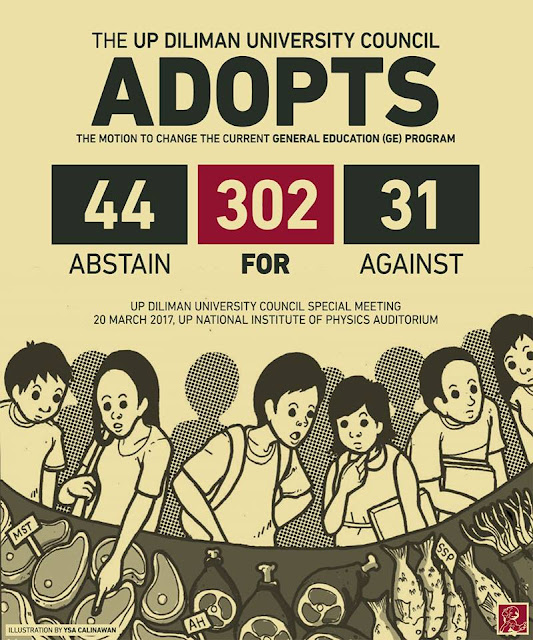Why We Need Liberal Arts in College
As an undergraduate student at the Ateneo de Manila University, I was required to take 5 courses in Theology, 4 courses in Philosophy, 2 courses in History, 4 courses in Spanish, 4 courses in English, 2 courses in Filipino, 2 courses in Economics, 1 course in Sociology/Anthroplogy, 1 course in Psychology, 1 course on the Philippine Constitution, and of course there was Citizen Military Training and Physical Education. These added to the required science courses of Calculus, Physics, General Chemistry, Quantitative Analysis, Organic Chemistry, Physical Chemistry, Inorganic Chemistry, Biochemistry, Industrial Chemistry, and Analytical Chemistry and a couple of electives in Computer Science. I would agree that the curriculum I went through was indeed heavy. In order to graduate in four years, I had to carry a full load for three summer sessions. Perhaps, this was one extreme. The other extreme, I believe, was passed recently by the University of the Philippines Diliman University Council. The Philippine Collegian reported on its Facebook page: "In a vote of 302-31 with 44 abstentions, the UP Diliman University Council (UC) has approved the motion to change the General Education (GE) program, March 20." The new program now requires just a minimum of 21 units of General Education.
 |
| Above copied from Philippine Collegian |
Ateneo de Manila University, however, is still requiring a much larger number of units in its core curriculum:
The Loyola Schools is particularly proud of its core curriculum, the primary instrument of formation through which the Ateneo spirit of excellence and service are articulated and passed on to students. It consists of 24 units of courses in the Humanities, 24 units of courses of Language courses, 17 to 31 units of Mathematics and Science, 21 units of Social Sciences courses, and 6 units of electives.Why professors in a leading university in the Philippines would vote for a reduced General Education curriculum is indeed baffling. Perhaps, these professors are not aware of the following articles:
 |
| Above copied from MasterStudies.Com |
 |
| Above copied from The Chronicle of Higher Education |
 |
| Above copied from The Washington Post |
 |
| Above copied from The Chronicle of Higher Education |
These professors are perhaps convinced that General Education subjects are going to be taught in high school. Obviously, this can only be true if the General Education courses taught in college are identical to the ones taught in high school. Surely, these two are vastly different.
I had fond memories of one Economics professor I had at the Ateneo. He was particularly appreciative of having chemistry majors in his class. We apparently brought something unique to his class. Our background indeed provided an additional perspective to economics, after all, we were in the natural sciences. Our presence had similar effects on our classes in philosophy, theology, psychology and literature. The best way to achieve cross-disciplinary thinking, which is now required to tackle present challenges in quite a complex world, is a diversified education. We will not achieve this by reducing higher education into a "narrow vocationalism". General Education courses in college are higher education subjects meant to broaden one's perspective and at the same time, encourage critical thinking not just in one's chosen field, but also in complex areas. These are not courses taught in high school.
Professors at the University of the Philippines may indeed be teaching subjects at the high school level. This maybe the reason behind the choice they just made.

Comments
Post a Comment